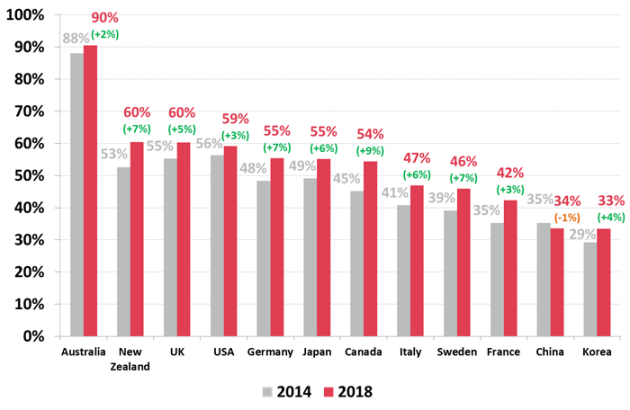Almost all Australians are more likely to buy Australian-made products than imports, according to a new study from Roy Morgan.
The research covering around 15,000 people found that ninety per cent of respondents would be more likely to buy an Australian-made product, and sixty per cent would be more likely to buy a product from New Zealand. China and Korea fared the worst, at 34 per cent and 33 per cent respectively, says Michele Levine, CEO Roy Morgan.
“Some 90 per cent of Australians are more likely to buy a product that is ‘made in Australia’, up from a high 88 per cent four years ago,” she said.
“However, although preference for buying Australian-made goods is strong, there is also increasing openness to foreign-made products, with increasing numbers of Australians more likely to buy goods from several of our largest trading partners including New Zealand.”

According to Ben Lazzaro, CEO of the Australian Made Campaign, the research highlights the importance of buying local to Australians.
“There is an increasing demand for authentic Aussie products produced in our clean, green environment and manufactured to our high standards.
“Awareness around country of origin labelling has increased in recent years, with more Australians wanting to know where their products come from. The Australian Made logo is the most important tool for consumers in identifying authentic Aussie products,” he said.
The study found that 90 per cent of respondents indicated that they would be more likely to purchase food products that were made in Australia, 76 per cent more likely for clothes, 73 per cent for wine, 62 per cent for sporting goods, 62 per cent for electrical goods and 52 per cent for motor vehicles.






